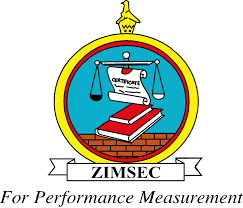In a significant legal development, an 18-year-old girl from Murisa Park in Chitungwiza, Shamiso Pretty Bvukure, has been convicted for forging her Zimbabwe School Examinations Council (ZIMSEC) results. This case has raised concerns about examination integrity and the lengths to which some individuals will go to manipulate their academic credentials.
Bvukure appeared before the Harare Magistrates’ Court, facing serious charges under the Zimbabwe Examination Act. The incident came to light during a routine verification process on October 11, 2024, when the Police General Headquarters’ recruiting section sought to confirm the ZIMSEC results of multiple applicants. During this verification, officials discovered discrepancies in Bvukure’s results slip, which had been altered in several key areas.
The tampering included significant changes to her academic performance: her mathematics grade was changed from an ungraded “U” to a “C,” her English Language score was upgraded from “U” to “B,” and her Shona Language mark was altered from “E” to “A.” Furthermore, the forged results slip fraudulently included “History” as an “A” and added subjects such as “Combined Science” and “Commerce,” none of which she had actually taken.
Following her conviction, Bvukure was sentenced to 12 months in prison. However, six months of her sentence were suspended for five years, contingent upon her good behavior. The remaining six months will be served as community service, requiring her to complete 210 hours of work. This sentence reflects a growing awareness among authorities about the consequences of examination fraud and the need to uphold academic integrity.
The incident involving Bvukure is not isolated. In a separate case highlighting the ongoing issue of examination malpractice, two men from Harare were recently apprehended for attempting to cheat during a Mathematics examination at Matthew Rusike College in Epworth. The suspects, 37-year-old Paddington Chataika and Joseph Murimba, were caught following a tip-off to officials from the Zimbabwe Schools Examination Council (ZIMSEC).
According to a representative from ZIMSEC, Chataika had orchestrated a plan for Murimba to take the exam in his place. The cheating attempt came to light when Tadzoka Chirima, the Loss Control Manager at the Harare Depot, responded to the alert and arrived at the college to conduct an investigation.
Upon his arrival, Chirima met with the school headmaster, Tendai Mararike, to discuss the unfolding situation. Following their discussions, they interviewed Murimba, who confessed to sitting for the exam on behalf of Chataika, who was reportedly waiting in the school parking lot. This incident underscores the persistent challenges facing educational authorities in ensuring the integrity of examinations and maintaining public trust in academic qualifications.
Both cases highlight a concerning trend of examination fraud in Zimbabwe, prompting calls for stricter enforcement of regulations and better awareness among students about the consequences of such actions. Educational authorities are tasked with not only assessing academic performance but also safeguarding the credibility of the examination system.
In light of these incidents, there is a growing consensus that a cultural shift is needed within the educational system. Students must understand the importance of honesty and integrity in their academic pursuits. The implications of cheating extend beyond individual consequences; they undermine the value of education and the hard work of those who strive to achieve their qualifications through legitimate means.
As authorities continue to address these challenges, it is clear that both deterrent measures and educational initiatives will be necessary to combat examination fraud effectively. The recent convictions serve as a reminder of the legal ramifications of dishonest actions, while also highlighting the importance of fostering an environment where academic integrity is prioritized and valued.
In other news – Gemma Griffiths making waves in Zimbabwean music
Zimbabwean singer-songwriter Gemma Griffiths is making waves in the Afropop genre, captivating audiences with her powerful vocals and catchy melodies. With a growing discography and a string of successful collaborations, Griffiths is establishing herself as one of the leading voices in contemporary Zimbabwean music.
In a recent interview with Yvonne Tivatye on the Gospel Greats Drive Thru, Gemma Griffiths shared insights into her musical journey and personal preferences. One interesting tidbit revealed during the conversation was her favorite Shona word: “Putugadzike,” which means “tea. Read More
